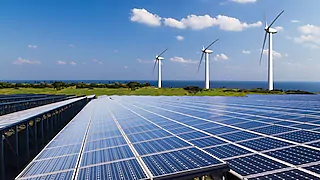The International Energy Agency (IEA) has published a commentary on the how the energy sector has not only directly contributed to climate change but also helped create a potential future water shortage.
The ‘water-energy nexus’ needs to be understood in order to avoid such unintended consequences, as climate change is slowed or even reversed by reduction in emissions, the replacement technologies could, if not properly managed, exacerbate or be limited by water stresses. IEA analyst Molly Walton notes that technologies such as wind and solar PV require very little water, but others like biofuels, concentrating solar power (CSP), carbon capture, utilisation and storage or nuclear power can have significant water demands.
Whilst water scarcity is having an impact on energy production globally any further shortages could tip the balance of economic and environmental viability, something the IEA says it will assess in a major forthcoming report on electricity security. For example, India has already lost 14TWh of thermal power generation in 2016 due to water shortages.
Hydropower, which plays an important role in many countries’ decarbonisation plans, is of course especially vulnerable to climate impacts. For example, hydropower accounts for 22 per cent of all of electricity generation in Africa (compared to 16 percent globally), and climate change has already affected the capacity of Zambia’s largest hydropower plant, leading to blackouts. Ironically, also a scarcity freshwater can also lead to a greater use on energy-intensive sources of water supply such as desalination.
Latest News
-
UK firms on course for ‘disorderly’ green transition
-
Clinical trials recruitment firm names hospice as charity partner
-
Carlsberg links up with sports for good collective at UEFA Under-21 championship
-
Big businesses’ social enterprise procurement ‘hits new high’
-
Insurance firm publishes guidance to help businesses adapt to climate change
-
Social landlord raises more than £100,000 for NSPCC in first year of partnership
© 2019 Perspective Publishing Privacy & Cookies









Recent Stories